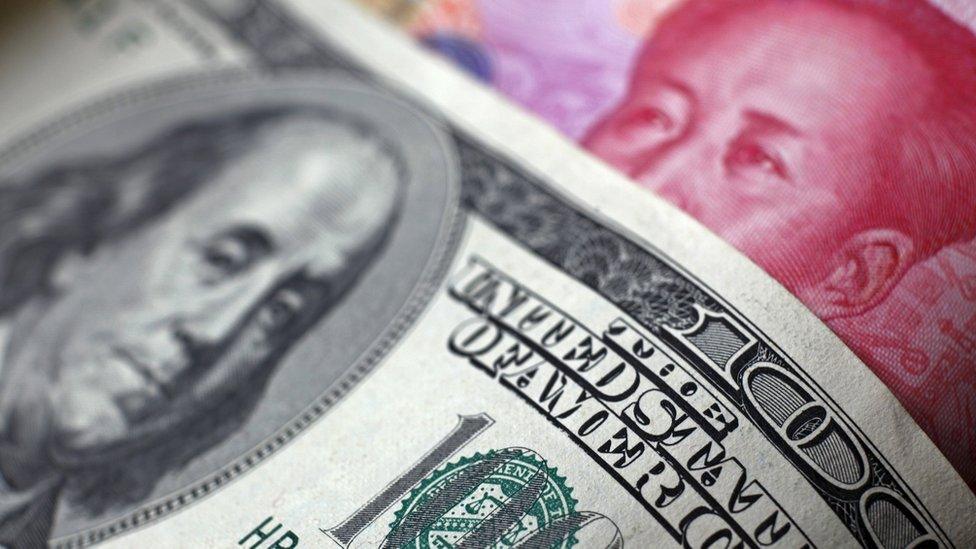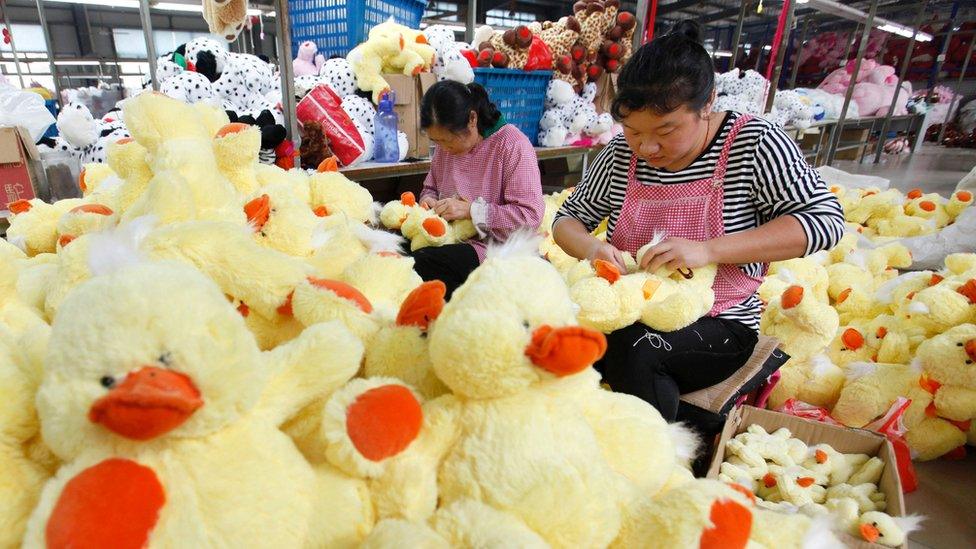The risks and benefits of China weakening its currency
- Published

So, as I predicted, the China plenum didn't shed much light on what the country's leaders are thinking about the economy.
In any case, trying to read the minds of China's economic tzars is often an exercise in futility.
But if you really want to know what their plans are, take a look at this graph showing the US dollar against the Chinese currency, the yuan.
This Friday, the yuan hit a six-year low having done so again and again over the past few weeks, which you can see from the dollar climbing all the way up at the end of the graph.
And over the past year the Chinese currency has been weakening against the US dollar in small but significant ways.
That's a "managed devaluation" of about 4%, says Vinesh Motwani of Silk Road Research.
But take note of when this all started to really take-off.
The G7 meeting in Japan - when currency manipulation was very much the hot topic - was in May.
At that time, China was under pressure to show that it wasn't unduly influencing the direction of its currency. In particular it had to convince the US and Japan. So if you look at the chart, it doesn't show a big dip at that point. But then the dollar does begin to gradually strengthen.
Now look at the chart again, this time in September, when China hosted the G20 summit. Again - a slight dip. But then soon after, more appreciation of the US dollar against the yuan.
"The G20 was a significant marker for the government," says Mr Motwani. "They needed to send the impression and perception of stability in China, and one of the most visible metrics, is a stable currency."
What appears to be happening is what Mr Motwani calls the government's desire for the yuan to have an "orderly depreciation of around 3% to 5% against the US dollar".

A softer Chinese currency makes its exports cheaper for foreign buyers
So why is a weak yuan a good thing for the Chinese economy?
Well exports have been falling consistently, raising concerns that China's ability to sell itself out of this slowdown is at risk.
Even a slightly weaker currency - which makes Chinese goods cheaper - could help on that front.
But here's the rub: China can't allow the currency to weaken too much because of the potential blowback the country will face from both domestic and international markets.
"China's projecting power externally, via the Asia Infrastructure Investment Bank and the Silk Road Fund," adds Mr Motwani. "They're funding a lot of infrastructure projects in South East Asia, and that requires a lot of Chinese money. So it doesn't make sense for them to weaken their currency too much."
Then there's the risk of Chinese people choosing to take their money elsewhere because of lowered economic expectations at home - so-called capital flight.
Dangerous game
So China is sort of stuck in the Goldilocks syndrome. It doesn't want the yuan too strong, so that it can rejuvenate exports.
But a currency that's too weak will mean folks at home could get nervous and start taking their cash out of the country.
Not a great position to be in, especially at a time when the prospects for growth next year look shaky.
Which possibly explains why some of China's top economic officials have all chimed in saying there is no basis for the persistent depreciation of the yuan, external and that economic growth will help the currency stabilise.
This should be read as an attempt by authorities to deflect any concerns from international and local investors that the yuan is under officially sanctioned downward pressure.
Remember the last time the yuan was effectively devalued it led to a slump in Chinese shares and around the world.
But this is a dangerous game that the Chinese authorities are playing. With the current state of the world economy, more uncertainty and a lack of clarity in their currency policy is not what any of us need.
- Published27 September 2016
